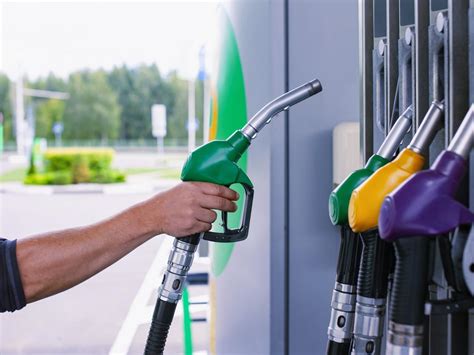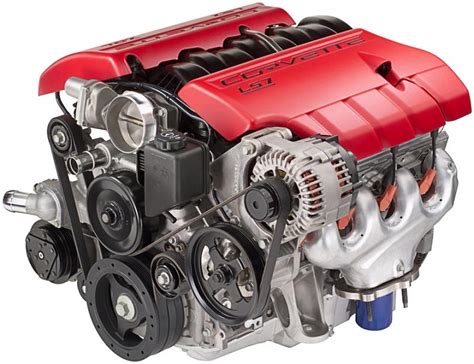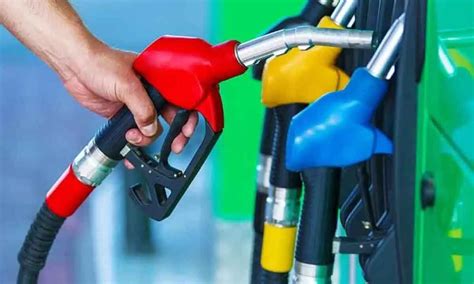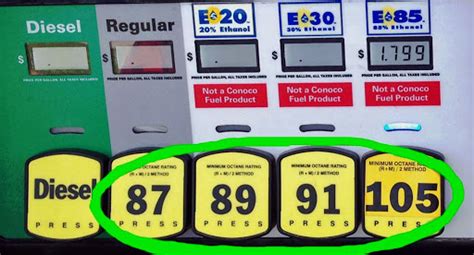For many drivers, the choice between regular and premium fuel at the pump can be confusing. Is premium just a marketing gimmick, or does it offer tangible benefits for certain vehicles? The answer lies in understanding what octane rating signifies and how it interacts with your engine’s design. Paying more for premium fuel when your car doesn’t need it is a waste of money, but using regular fuel in an engine designed for premium could lead to long-term issues.
Understanding Octane Ratings and Engine Knock
Octane is a measure of a fuel’s resistance to ‘knock’ or ‘pre-ignition’ – an uncontrolled combustion event that occurs when the air-fuel mixture ignites prematurely, before the spark plug fires. This creates competing flame fronts in the cylinder, causing a metallic knocking sound and, more importantly, potentially damaging engine components over time. Higher octane numbers indicate greater resistance to this premature ignition.
Modern engines are equipped with knock sensors that detect these early detonations and adjust the ignition timing to prevent damage. While this protects the engine, it also means the engine is not performing at its optimal, most efficient, or most powerful setting. This is where premium fuel can make a difference.

Vehicles That Truly Benefit from Premium Fuel
Not all cars are created equal when it comes to fuel requirements. Premium fuel (typically 91 octane or higher) is specifically designed for engines with high compression ratios, forced induction (turbochargers or superchargers), or advanced ignition timing. These characteristics are often found in:
- High-Performance Sports Cars: Vehicles from brands like Porsche, Ferrari, BMW M series, or Mercedes-AMG are engineered to extract maximum power and performance, which often necessitates higher octane fuel to prevent knock.
- Luxury Vehicles: Many high-end sedans and SUVs use sophisticated engines that perform best with premium fuel. Brands like Audi, Lexus, and Cadillac frequently recommend or require 91+ octane.
- Turbocharged or Supercharged Engines: Forced induction systems significantly increase the pressure and temperature inside the combustion chambers, making them more prone to knock. Premium fuel provides the necessary resistance to handle these conditions.
- Some Motorcycles and ATVs: High-performance two-wheelers or off-road vehicles may also specify premium fuel due to their engine design.
Always check your vehicle’s owner’s manual. If it recommends premium fuel, you might notice a slight performance or efficiency boost, but it’s not strictly necessary. If it requires premium fuel, using regular could lead to reduced performance, decreased fuel economy, and potential long-term engine stress, even with knock sensors mitigating immediate damage.

What Happens If You Use Regular Fuel in a Premium-Required Engine?
Modern vehicles are smart. If your engine is designed for premium but you fill up with regular, the knock sensors will detect the propensity for pre-ignition. The engine control unit (ECU) will then automatically retard (delay) the ignition timing. This adjustment prevents damaging knock but comes at a cost:
- Reduced Horsepower and Torque: Your engine won’t produce its advertised power.
- Decreased Fuel Efficiency: The engine works less efficiently, potentially negating any savings from cheaper fuel.
- Increased Emissions: Suboptimal combustion can lead to higher emissions.
While occasional use of regular fuel in a premium-required engine won’t cause immediate catastrophic damage thanks to these safeguards, consistent use can result in a less satisfying driving experience and potential long-term wear due to the engine constantly operating in a sub-optimal state.

When Premium Fuel is NOT Worth the Cost
For the vast majority of vehicles, specifically those whose owner’s manuals explicitly state that regular 87 octane unleaded gasoline is acceptable or recommended, premium fuel offers absolutely no benefit. Your engine is designed to run efficiently on regular fuel, and pouring higher-octane fuel into it will not:
- Improve performance (horsepower or acceleration).
- Increase fuel economy.
- Clean your engine more effectively (most fuels, regular or premium, contain detergents).
- Extend the life of your engine.
In these cases, you are simply throwing money away. The slight difference in cost per gallon adds up significantly over time, providing zero return on investment for your vehicle’s performance or longevity.

The Bottom Line: Consult Your Owner’s Manual
The most definitive source of information regarding your vehicle’s fuel requirements is its owner’s manual. Look for a section on ‘Fuel Requirements’ or ‘Recommended Fuel.’ It will clearly state whether your car requires premium, recommends premium, or runs perfectly fine on regular unleaded.
If your manual says ‘Premium Fuel Required,’ stick to it. If it says ‘Premium Fuel Recommended’ or simply ‘Unleaded Gasoline,’ you can safely use regular 87 octane. If you’re unsure, or if you drive an older vehicle without a manual, a quick search online for your specific make and model can often provide the answer.
Ultimately, making an informed decision at the pump means understanding your vehicle’s needs. Don’t be swayed by myths or marketing; let your car’s engineering guide your choice and save your money for when premium fuel is truly warranted.





